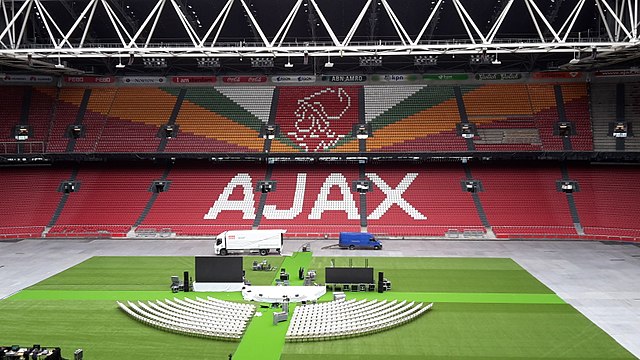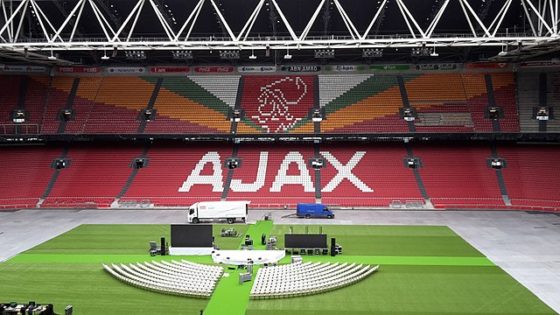Machines mimicking football fans help shed light on aerosol-borne infection


Scientists and staff from national sports centre Papendal and the Johan Cruijff Arena stadium in Amsterdam will be investigating the spread of aerosols – tiny droplets – in stadiums and other locations to measure the risk of coronavirus contagion in a crowd.
Health institute RIVM has consistently said there is no proof aerosols are instrumental in the spread of the virus.
This is disputed by scientists from Eindhoven University of Technology who are conducting the large-scale study. They maintain it is possible that very small droplets of saliva can remain in the air and travel distances of at least a metre and a half.
‘That means that the virus can spread among sports fans and spectators in a stadium or sports hall, ‘ a spokesman for the research group told broadcaster NOS.
The focus of the investigation is on finding out about aerosol density and how long the virus survives in the droplets.
The Johan Cruijff Stadium in Amsterdam will be the testing ground for the research, which started on Thursday. ‘We are the first football stadium in the Netherlands and abroad to work with these tests to chart the risks for public and players,’ a spokesman for the stadium said.
To this end, the stadium has been equipped with artificial aerosol generators which mimic noisy football supporters shedding potentially virus-laden aerosols.
The first results are expected in January next year.
Thank you for donating to DutchNews.nl.
We could not provide the Dutch News service, and keep it free of charge, without the generous support of our readers. Your donations allow us to report on issues you tell us matter, and provide you with a summary of the most important Dutch news each day.
Make a donation